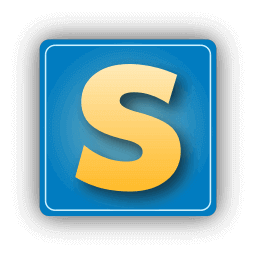
AnyDesk is a user-friendly remote desktop application. Access your programs, data, and files from anywhere without relying on a cloud service.
All your home or office PC’s software, files, and settings are always immediately available, without annoying network configuration. And your files remain where they belong: on your PC.
AnyDesk’s claim of being the fastest remote desktop software is bold. While it’s certainly a popular and well-regarded option, determining whether it’s truly the quickest is a complex matter influenced by various factors.
The application was designed from the ground up to be groundbreaking. At its core is DeskRT, a new video codec specifically designed for graphical user interfaces.
Remote computer control and maintenance using AnyDesk is as secure as online banking, thanks to TLS 1.2 encryption, 2048-bit RSA Key Exchange, and Erlang technology. Both ends of the connection are cryptographically verified. That’s why AnyDesk is one leap ahead.
AnyDesk Features:
Access
Forget about low reliability and tedious firewall configurations. Use your personal computer from anywhere and without any headaches. Whether for five minutes or five hours – you won’t even notice AnyDesk is there. Your personalized AnyDesk ID is the key to your desktop with all your applications, photos, documents, and files. And your data stays where it belongs on your hard drive, and nowhere else.
Traffic
Maximizing bandwidth efficiency is essential when using remote desktop software over an internet connection, particularly on mobile networks such as UMTS. High bandwidth efficiency allows smooth office tasks with just 100 kB/sec of available bandwidth. Even at lower bandwidths, AnyDesk outperforms competitors in performance.
Collaborate
The program allows you to collaborate with all your favorite desktop applications. Features like a mouse cursor for every user keep your team connected, regardless of distance. Point out what’s important to your peers, and communication problems will be a thing of the past.
Framerate
The app transmits 60 frames per second over local networks and various internet connections, exceeding the performance of competing remote desktop applications. This ensures smooth on-screen movement, matching the 60 frames per second standard of most PC displays, and enables seamless, jerk-free operation.
Assist
The app goes beyond remote administration and support while excelling in these areas. Lag and low frame rates can be frustrating, so AnyDesk eliminates them. Tasks like setting up a colleague’s new printer or installing a CRM tool for the sales team become effortless with AnyDesk.
Latency
Minimizing latency is critical for working on a remote desktop. The lower the latency, the faster the remote PC responds to your input. Since internet connections always introduce latency when transmitting data between PCs, AnyDesk aims to add as little as possible to this baseline. In local networks, AnyDesk’s latency is below 16 milliseconds and becomes imperceptible.
Free Edition: for the occasional private use.
Lite Edition: Offers all necessary features for small businesses.
Professional Edition: Ideal for mid-sized companies, it provides extended features for integration and administration.
Enterprise Edition: It has been tailored to the requirements of large corporations.
Changes in Any Desk 9.0.0 :
New Features:
- Introduced new feature AnyDesk Assist (UltimateCloud only):
- Technicians can now initiate sessions without the remote user’s AnyDesk-ID, simplifying access via the quick support client (if enabled). Includes tools for request creation, tracking, and management.
- Users can now request assistance from technicians directly from the client (if enabled).
- Introduced a new feature Screen Recording
- Custom Clients now support updates to a Custom Client with the same version but a different configuration.
Fixed Bugs:
Other Changes:
- Improved UI feedback when registering Licenses via URLs and added a new silent option to suppress it
- Improved Localization of many languages
AnyDesk works on Windows, macOS, Android, iOS, Linux, and FreeBSD.

